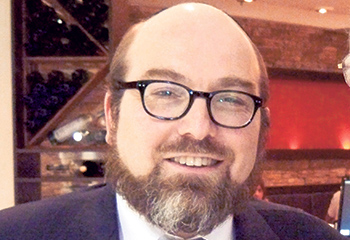The Jewish Community Council of Montreal, which issues the MK hechsher, is determined that the food it certifies not only meets its kashrut requirements, but international standards for food safety as well.
The council, formerly known as the Vaad Ha’ir, announced on Oct. 10 that it is partnering with Food With a Conscience and Medina Quality Food Assurance Services to assist small and medium-sized kosher food manufacturers and suppliers in improving their safety standards.
Noting that this will benefit consumers beyond those in the Jewish community, council executive director Rabbi Saul Emanuel said, “Canadians are the big winners. They will have more confidence in the food they’re putting on their tables.”
An international advisory committee of independent academic and industry experts will guide this effort.
READ: AS FOOD PRICES RISE, KOSHER CONSUMERS ARE STRUGGLING
“Small and medium-sized businesses are increasingly going to have to meet internationally accepted standards and regulations as dictated by the Global Food Safety Initiative (GFSI) and government bodies like the Canadian Food Inspection Agency and the United States Food and Drug Administration in order to have access to domestic shelves and export markets,” said committee member Albert Chambers, head of Ottawa-based Monachus Consultant, which has been involved in the development of Canada’s food safety and traceability policy.
GFSI is described as an industry-driven effort providing guidance along the food supply chain, overseen by the Paris-based Consumer Goods Forum, which was founded in 2009 and has representation from more than 70 countries.
“This is a costly and time-consuming challenge for many small and medium-sized businesses, and customers, and competent authorities have agreed that individual companies should be able to move forward in phases over an extended period of time,” Chambers said.
Rabbi Emanuel said, “MK, which already works with a large number of kosher food manufacturers across Canada, is determined to help our existing and future clients meet this challenge.”
Central to this effort will be an online registry where food suppliers can obtain up-to-date information, and together with their customers monitor their progress toward meeting international standards.
Based on their results, Food With a Conscience will award companies one of three levels of rating: bronze (meeting the basics of the GFSI global market program), silver (intermediate) and gold for the highest standards.
“I wish to stress that a bronze rating means that basic standards have been met but that there is room for improvement,” said Danielle Medina, president of Food With a Conscience.
“Achieving gold status means that all GFSI requirements have been met. An external audit and certification will have to be completed.”
The council has been concerned with ensuring the safety of the food it certifies for some years.
READ: FACEBOOK FOOD GROUP CRIES FOWL OVER KOSHER CHICKEN QUALITY
In 2011, it was one of four kashrut certifying bodies in Canada to share a grant of more than $763,000 from the federal government for a project aimed at setting national standards, which it co-ordinated. Medina Quality Food Assurance Services and Food With a Conscience, private companies that serve as consultants to industry on food safety, were also partners in that endeavour.
This project helps kosher food manufacturers to identify the ingredients used in the preparation of foods, ensuring that each ingredient is kosher, and then recording the information using specially designed software, Rabbi Emanuel noted.
“There is no question that kosher certification respects and enhances food quality and safety standards throughout the whole food supply chain, including raw and semi-manufactured foodstuffs and final products in all principal segments such as meat, fish, dairy, fruit and vegetables, bread and beverages,” stated Rabbi Emanuel.
“In the current climate of food fraud where manufacturers use products that are not identified on their labelling to the detriment of consumers, kosher certification becomes an important asset.
“Recent examples of fraud include the misidentifying of the place of origin of fish and the doctoring of 100 per cent real Parmesan cheese with cut-rate substitutes and such fillers as wood pulp. Incidents like these shatter consumer confidence, and MK takes pride in its contribution to maintaining the integrity of our food system.”
Medina said, “By participating in this program, small and medium-sized specialty food businesses will gain the confidence of retailers and food service operators, which in turn will lead to increased sales at home and abroad.”
The advisory committee will provide input on food safety developments, specialty food issues, and audit and certification standards. Besides Chambers, the members are Stephane Cadieux, food safety manager, Gate Gourmet Canada Inc; Prof. Samuel Godefroy of the department of food science at Université Laval; Jeff Hall, director of quality assurance at Metro Ontario Inc.; Dr. Nikos Mavroudis, senior lecturer in food science and program leader in food and nutritional sciences at Northumbria University; Anick Provost, director of the food safety allergen control program at Allergies Québec; Kevin Swoffer, director, KPS Resources Ltd. and past chairman of the GFSI Technical Committee; and Paul Valder, president of the Gluten-Free Certification Program.
